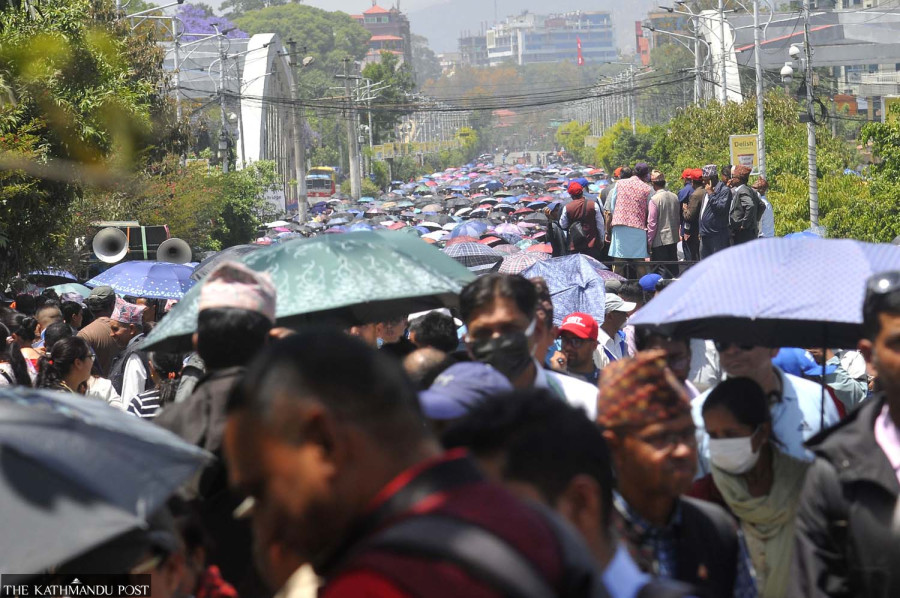National
Education bill drags on, teachers dig in
The School Education Bill’s passage is unlikely before May 10 even if the entire process goes smoothly.
Binod Ghimire
Even as a parliamentary committee has expedited the process to finalise the School Education Bill, there are slim chances of its endorsement before May first week—without which teachers are refusing to return to their work.
CPN-UML’s Chhabilal Bishwakarma-led sub-panel under the Education, Health and Information Technology Committee of the House of Representatives has been meeting regularly to finalise the bill for the past four weeks.
By Wednesday, it had finalised around 115 out of the 163 sections of the bill. “We have hours of discussions every day. Finding consensus on complex provisions is a tough task,” Dig Bahadur Limbu, a member of the panel, told the Post. “May 5 is our deadline, but we are trying to give it a final shape a couple of days earlier.”
As many as 161 lawmakers from the ruling and opposition parties have registered 1,758 amendments to the bill. Despite lengthy discussions, there has yet to be agreements on half of them. The panel is finding it hard to agree on provisions related to teacher management and regulation of private schools.
In a meeting with cross-party chief whips on Wednesday, Speaker Devraj Ghimire said the Bishwakarma-led panel would submit its report to the House committee on May 5. Even if the Education Committee endorses it in one day and tables it in the lower house the next day, it will take at least three or four additional days for endorsement from both the Houses.
“Parliament is preparing to give priority to the School Education Bill. We will reserve a date on the calendar to present the bill to the lower house as soon as it is received,” said Ghimire. The bill will be forwarded to the upper house once it is endorsed by the House of Representatives. It comes into force after receiving the presidential seal following its endorsement by both the Houses.
The whole process will not be completed before May 10 even if neither the education committee nor either House holds the bill for more than a day. This means there are still 17 days for the school teachers to return to their classrooms.
Public school teachers are part of an educational strike announced by the Nepal Teachers’ Federation. They have been protesting along the Maitighar-Baneshwar road for hours every day for the past 22 days.
“The federation had expected the protest to last for a week, at a maximum. However, with the government not sensitive to our demands, it’s already been three weeks,” Nanu Maya Parajuli, co-chair of the federation, told the Post. “All we want is the Act. Give it to us today, and we will be in classrooms tomorrow.”
The National Examination Board has postponed the grade 12 final tests by 10 days, to May 4, following the educational strikes by the teachers. As the bill is unlikely to be endorsed by May 4, the board will have to postpone the test again.
Though the examination controller’s office has already announced that the School Education Examination (SEE) results will be announced by June 21—within three months of the test—that now seems unlikely. Teachers have refused to evaluate the answer sheets unless the bill is endorsed.
Amid mounting uncertainty in the academic sector, Education Minister Bidya Bhattarai resigned from her position on Monday. Although she cited poor health for the resignation, pressure from the teachers and non-cooperation from the prime minister and finance minister in releasing the budget to address teachers’ demands are believed to be the actual cause.
On Wednesday, Prime Minister KP Sharma Oli appointed UML leader Raghuji Pant as Bhattarai’s successor.




 9.83°C Kathmandu
9.83°C Kathmandu














